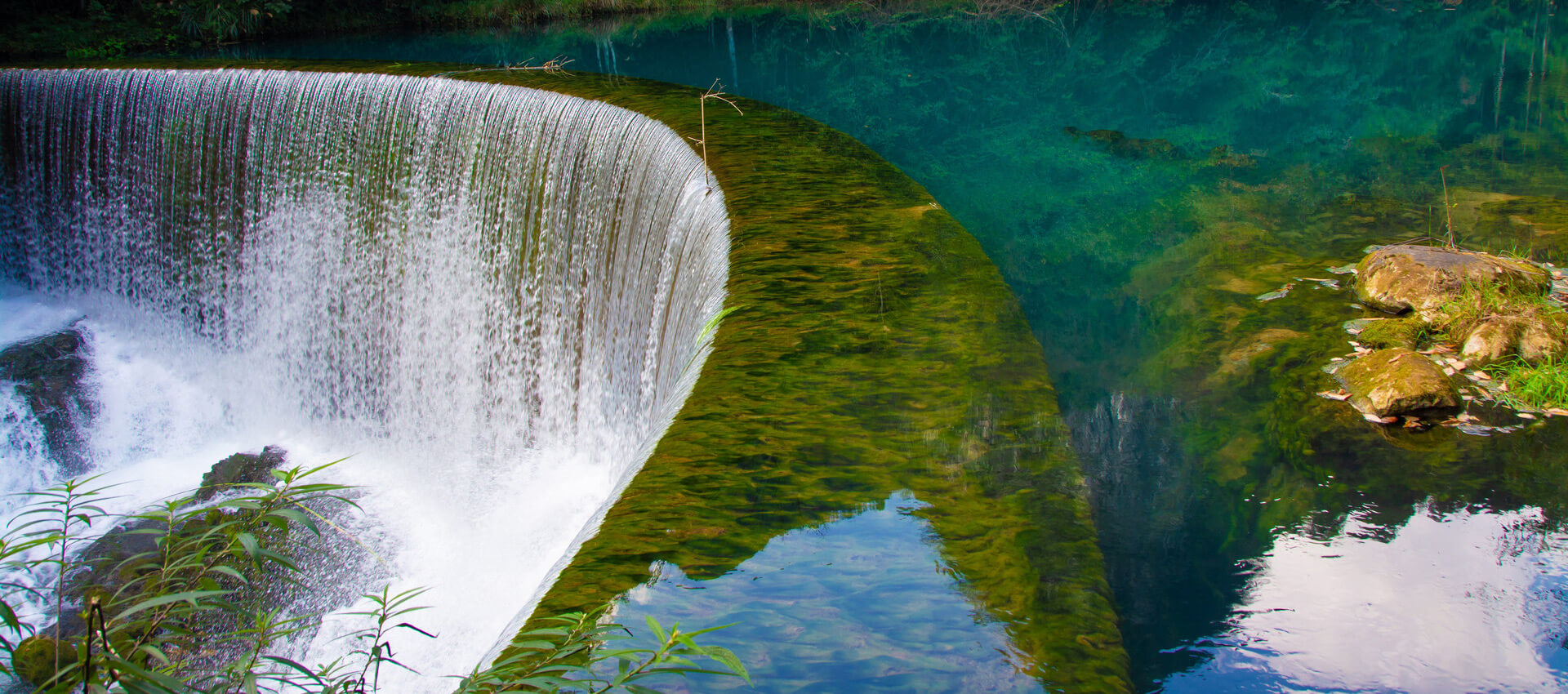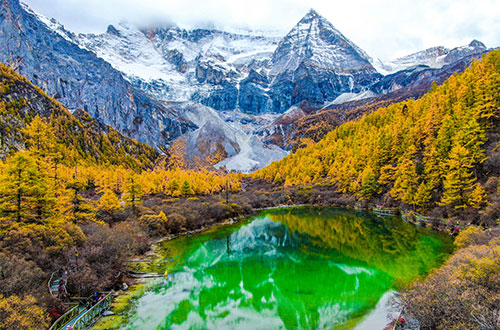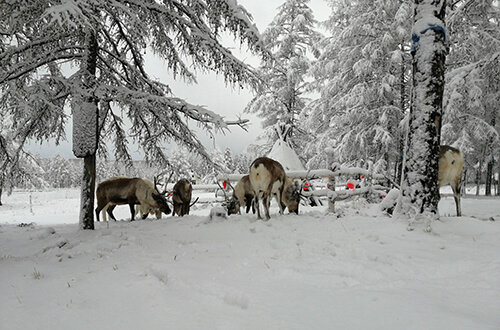6 days Guiyang, Kaili, Xijiang and Libo Tour
Karst is a type of landscape where the dissolving of the bedrock has created sinkholes, sinking streams, caves, limestone pinnacles, and waterfalls. There is no lack of karst landscapes in China. The karst landscape along the Li River in Guilin and Stone forest in Kunming are famous around the world. Guizhou is a gem hidden amongst jagged karst mountains, where nearly 80% of the land is covered in either mountains or limestone. In Xingyi, the southwestern part of the province is known as the “wonder of the world”, and is Guizhou’s peaceful karst paradise. The Zhijin Cave in the southern part of the province is the largest in the country. Huangguoshu Waterfall in the southwest is one of the largest waterfalls in China. The karst landforms in the Libo area integrate hills, waters, underground caves, and green trees, presenting a beautiful picture.
This 6-day tour includes a tour to the ethnic minority villages and karst landforms in the Libo area. You will encounter waterfalls, crystal clear, turquoise lakes, caves, and Karst hills.
Highlights of The Tour
#1 Encounter the minority culture and customs - visiting some of Guizhou region's most beautiful Miao villages. 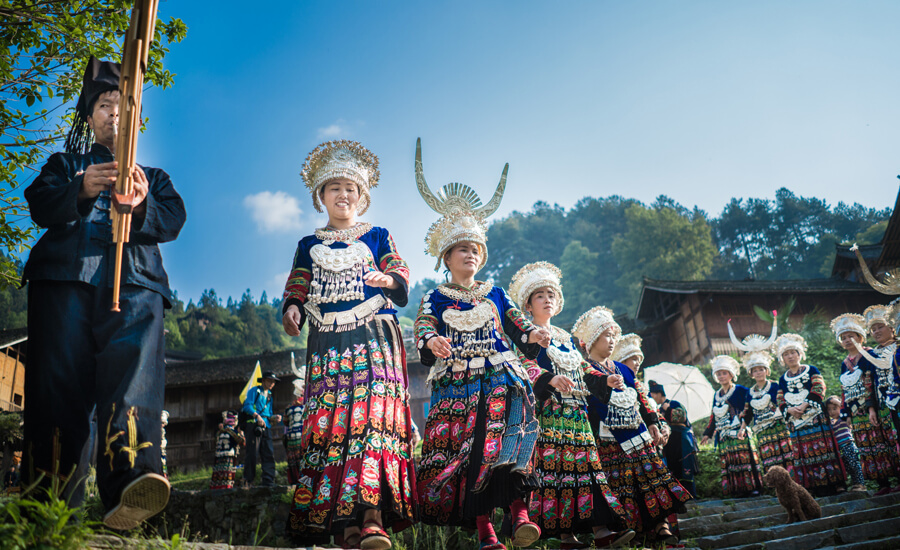
#2 Explore Kongbai village and its 600-year old silver-making tradition. 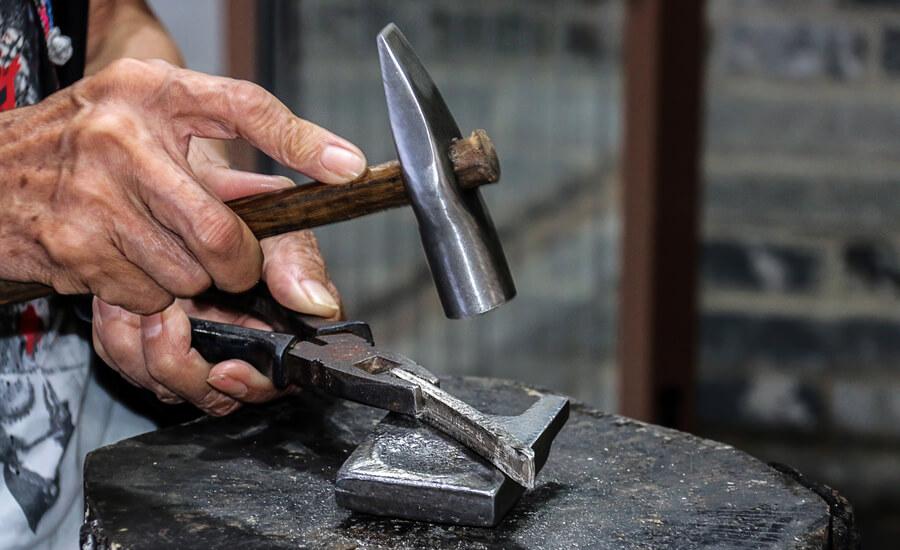
#3 Explore the Seven Small Arches & Libo Scenic Area, which is characterized by unique Karst landscapes, mysterious dense forests, various living species, splendid overlapping mountains, clear rivers, and lakes. 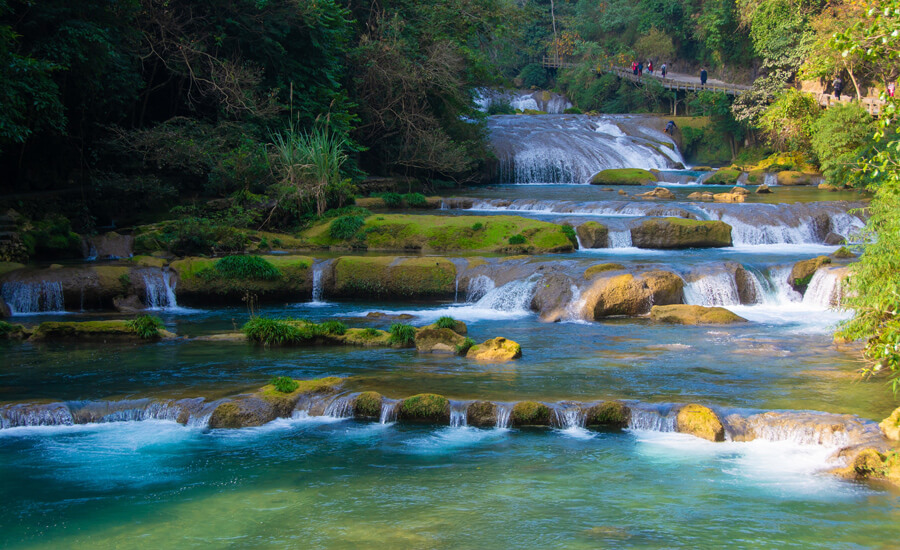
#4 Enjoy the karst landscapes see nature at its best at Maolan National Nature Reserve. 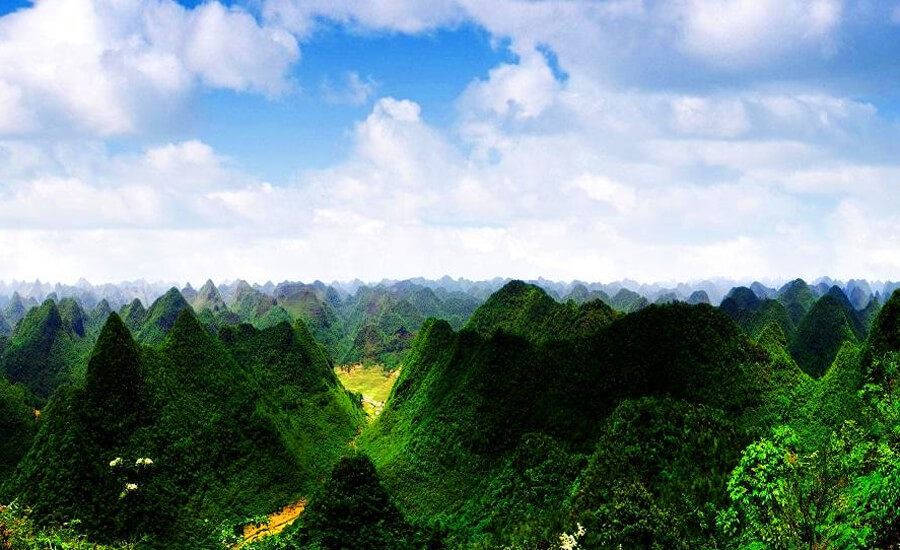
Full Itinerary
Make your own travel arrangements by either train or flight to Guiyang (Guiyang Longdongbao International Airport IATA: KWE). Our guide and driver will pick you up and take you to your hotel.
If time permits, visit Jiaxiu Tower , this was the location where scholars came to study in the past. Take a walk through the city center and later in the evening, you can enjoy some local dishes for dinner. Ask our guide for recommendations of popular local cuisine to try.
Today, you will head to Qiandongnan area which is home to the largest concentration of Miao and Dong ethnic people in China.
En route, there is a stopover in Qingman and Shiqiao villages. Qingman Village is a beautiful example of an intact traditional Miao Village. The houses are made of wood, raised on stilts on the steep hillside, and tightly packed together to maximize workable farmland.
Shiqiao Village is composed mostly of people from the Miao ethnic group, the village is well known for its ancient papermaking technique that dates back to the Tang Dynasty (618-907). The ancient craft of papermaking in Shiqiao is different from modern-day mechanized production. The raw material includes the bark of a special kind of tree and paper mulberry, which can be easily found in the area. From collecting tree bark to pulling off the dry paper from the baking wall, it involves 14 steps to produce a finished piece of paper. All the steps are done by hand, with no industrial chemicals used during the entire process.
You will overnight in Kaili, the capital city of Qiandongnan Miao and Dong Autonomous Prefecture. In the region around Kaili, between mountains and rice terraces, are nested several small towns and villages where it is possible to come in contact with the traditions, customs, and lifestyle of several ethnic minorities.
After breakfast at the hotel, you will be driven to Kaijue Village , a Miao ethnic village nestled by mountains, where you can find the traditional Miao dwellings and the Diaojiao Lou. This traditional type of dwelling is made entirely of wood and uniquely held together by joints. Typically the houses have 3 floors: the first is for livestock, the second is where people live, and the third floor is used for storage.
Today, you will hike to Kongbai; about 2 hours’ hiking in the countryside. Kongbai Village , nicknamed the “village of silversmiths”, the craft of making silver headdresses, earrings, necklaces, bracelets, belts, and other garment accessories that have been handed down for centuries and is etched in the cultural customs of the Miao ethnic people. The Miao people also believe silver jewelry wards off evil spirits and can purge the body of toxins.
Afterward, there is an hour’s drive as you head to Xijiang Miao Village , also known as the One-Thousand-Household Miao Village of Xijiang. It is home to 6,000 Miao people. The village was dubbed as the biggest Miao village in the world. Usually crowded in the morning, we have therefore chosen to visit it in the afternoon and stay the night for you to enjoy the night view. You will visit the outlying areas of the village and climb to the upper parts of the village to enjoy the spectacular view of over hundreds of wooden dwellings. Stroll through the main streets, where you can see many souvenir shops selling snacks, trinkets, and silver works. Overnight in Xijiang.
Langde Village is your destination for today. The women in Langde wear long skirts and are often referred to as “long skirt Miao”. Enjoy a show of the Miao minority dance and song performed by people from the village
Daqikong (Large Seven-hole Bridge Scenic Resort) is the name of the natural bridge located at Libo’s second Natural World Heritage Site. It takes about an hour at a leisurely pace to hike to its location, although boats can take you part of the way.
Overnight in Libo.
Today you will head to the Xiaoqikong (Seven Small Arches) , a huge park featuring countless waterfalls, crystal clear, turquoise lakes, caves, and karst mountains on all sides.
Afterward, you will be driven to Maolan National Nature Reserve , Maolan means “bushy orchids” and 85 wild orchid species are found in the reserve. It was listed as a biosphere reserve in 1996 and included in the World Heritage List as part of the South China Karst in 2007.
Today, your tour ends, where we say goodbye and send you to the airport in Libo or transfer you back to Guiyang for your transportation to your next destination. It will take about 4.5 hrs from Libo to Guiyang by car.
Note: You can fly out of Libo from Qiannan Prefecture Libo Airport (IATA:LLB), they have flights to Nanjing, Kunming, Guiyang, and Jieyang. The Libo Bullet train station will be opened in 2023.
Tour Summary:
Make your own transportation arrangements, and we will meet you at the airport or train station. This trip takes you on a journey through Guizhou’s karst paradise and encounter some of the ethnic minority villages and their unique architectural buildings made of wood, and learn about their craftsmanship. If you enjoy nature, then this trip would not disappoint you! Talk to us to help customize a tour.
Featured Hotel
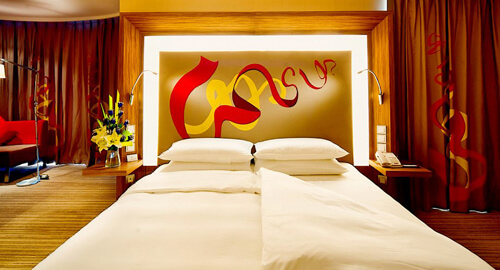
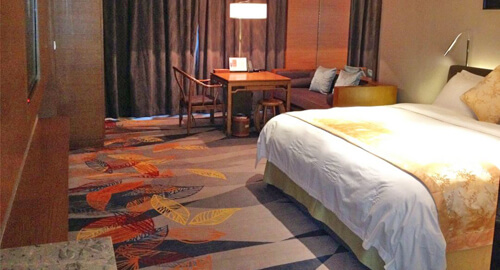
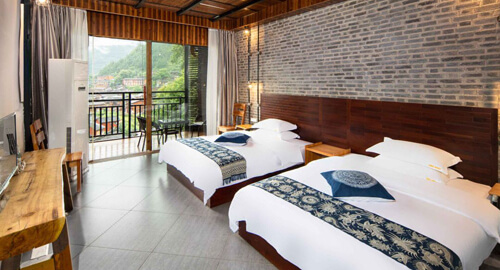
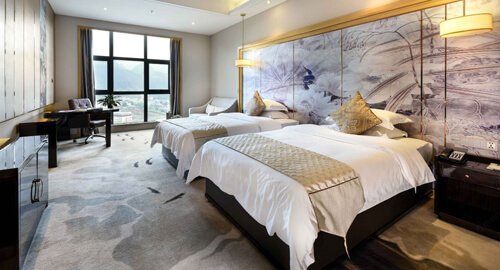
What’s Included
- Experienced tour guides
- Entrance fee to all spots listed in the itinerary
- Well selected hotel accommodation
- Meals mentioned in the itinerary
- Expert drivers and comfortable vehicles with air-conditioning
Wechat & WhatsApp: +86-13471279378
